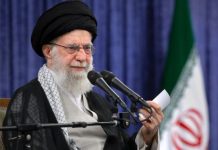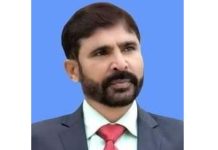Dr. Muhammad Akram Zaheer
American political discourse has an issue of “national security” fundamentally amplifies its importance, often bringing it to the forefront of policy discussions and public concern. The term itself carries a weight that surpasses ordinary political or social issues, signaling a matter of utmost priority for the nation’s well-being. Within the specialized field of foreign policy analysis, national security concerns are typically classified under “high politics,” a category reserved for the most critical and existential threats to a nation. This includes matters such as the regulation and control of weapons of mass destruction, which are seen as pivotal to a country’s survival and sovereignty. Conversely, issues like human rights, although important, are often relegated to the realm of “low politics,” considered secondary in terms of immediate national survival.
However, the designation of what constitutes a national security issue is not universally agreed upon. The boundaries of national security are fluid and have shifted over time, reflecting changes in the geopolitical landscape, technological advancements and evolving perceptions of what threatens a nation. In the American context, the concept of national security has seen significant variation throughout history, influenced by both external threats and internal developments.Historically, American leaders have invoked the concept of national security without always providing a precise definition. During the Revolutionary era, figures like George Washington and Alexander Hamilton used the term, but its exact meaning remained ambiguous. The concept of national security as we understand it today began to take shape in the mid-20th century. The onset of the Cold War marked a significant expansion of the national security agenda. The passage of the National Security Act in 1947 was a pivotal moment, establishing the framework for America’s national security apparatus, including the creation of institutions like the National Security Council and the Central Intelligence Agency. Yet, even then, the act did not clearly define what national security entailed.
As the Cold War progressed, the scope of national security concerns fluctuated. During periods of intense tension with the Soviet Union, such as the early years of the Cold War, national security concerns were broad and all-encompassing. However, as détente—a relaxation of tensions between the U.S. and the Soviet Union set in during the late 1960s, the focus of national security began to narrow. This shift was temporary, as new challenges, such as the 1973oil embargo, soon emerged, once again broadening the scope of what was considered a national security issue, particularly with regard to energy security.The 1980s saw further expansion of the national security concept, reflecting the global strategic competition of the time. However, the end of the Cold War in 1991 brought about a period of relative ambiguity. With the collapse of the Soviet Union, the United States found itself without a clear, existential threat, leading to a period of debate and uncertainty among scholars and policymakers regarding the definition and scope of national security.This uncertainty persisted until the attacks of September 11, 2001. The events of 9/11 and the subsequent “war on terror” led to a dramatic and rapid expansion of the national security concept. In the post-9/11 world, a wide array of issues began to be framed as matters of national security. Today, national security encompasses not only traditional military and intelligence concerns but also a diverse range of issues such as climate change, cybersecurity threats like ransomware, the security of critical minerals, the development and deployment of artificial intelligence and even public health challenges like personal protective equipment during pandemics.In the contemporary American context, the term “national security” has become so expansive that it can be applied to almost any issue. This broadening reflects the complexity of the modern world, where threats are increasingly diverse and interconnected. Consequently, the line between “high politics” and “low politics” is increasingly blurred, as issues once considered peripheral are now recognized as central to the security and stability of the nation.
The ongoing process of economic globalization and the rapid pace of technological advancement have undeniably amplified the number of unconventional threats that the United States faces today. These new challenges arise from various sectors, including cybersecurity, global financial systems and emerging technologies like artificial intelligence. However, there is a noticeable trend within the U.S. foreign policy establishment: an accumulation of concerns that never seem to be fully addressed or resolved. Instead of removing old concerns from the national security agenda, new ones are added, creating a growing list of issues that demand attention.In the complex landscape of global politics, problems rarely disappear on their own. At best, they fade into the background but never truly go away. Even when crises seem to be under control, they often linger, only to reemerge later when left unattended. These issues, once considered peripheral, can quickly move to the forefront, demanding urgent attention. This dynamic creates a challenging environment where policymakers must constantly juggle a multitude of concerns, both new and old.Within this context, policy entrepreneursindividuals or groups who advocate for specific policy changes play a significant role. They come from various political backgrounds and push the administration, Congress and other key actors in U.S. foreign policy to prioritize their particular issues as matters of national security. Their goal is to secure greater focus and resources for these concerns, which they believe are critical to the nation’s safety.Among these voices, American populists and nationalists are particularly vocal. They tend to view a wide range of issues as threats to national security, often advocating for aggressive measures to address them. A notable example is the Heritage Foundation’s Project 2025, which outlines potential policies for a second Trump administration, should Donald Trump win the upcoming election. This project highlights concerns about both domestic big tech companies and foreign firms like TikTok, labeling them as potential national security threats that require regulation.
The influence of these political interests and the structural incentives within the foreign policy establishment lead to an ever-expanding list of national security issues. Rarely are concerns removed from this list, which results in a situation where almost anything can be framed as a national security threat. However, this broad and ever-growing definition of national security creates a significant risk. When too many issues are labeled as national security priorities, it becomes difficult to determine which threats truly deserve the most attention and resources.
Without a more focused and deliberate discussion among policymakers about what truly constitutes a national security issue, there is a real danger that Washington will spread its resources too thin. By attempting to address too many concerns simultaneously, the U.S. may end up effectively addressing none of them. This dilution of focus can lead to genuine threats being overlooked or inadequately addressed, ultimately compromising the nation’s safety and security.As the next president takes office in January, a critical task will be to reassess and redefine the fundamental principles that guide national security policy. This reassessment is essential to narrow the scope of national security concerns to those that genuinely pose the most significant risks. Without such a reevaluation, there is a considerable danger that the U.S. will continue to overextend itself, attempting to tackle too many issues at once and failing to adequately protect the nation from real and pressing threats.
The concept of national security in American political discourse has evolved significantly over time, expanding to encompass a wide array of issues beyond traditional military and intelligence concerns. This broadening reflects the complex and interconnected nature of modern threats, from cybersecurity to climate change. However, this expansion also poses challenges, as the growing list of concerns risks diluting focus and resources. It is crucial for policymakers to carefully assess and prioritize what truly constitutes a national security issue, ensuring that the most critical threats receive the attention they require to safeguard the nation’s well-being.












